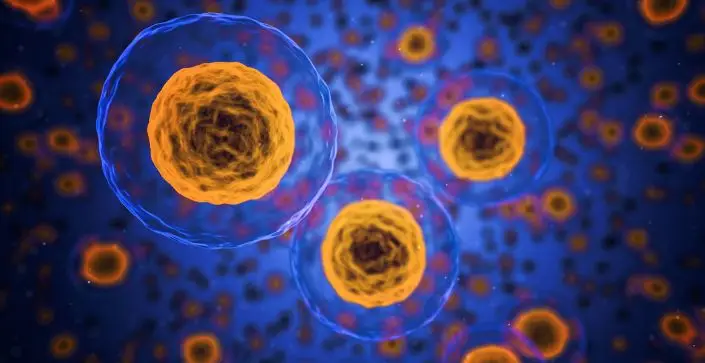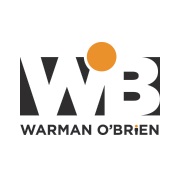Insights
Talent Strategies for Precision Diagnostics: Insights for Hiring Managers
24 Jul, 20252 minutesAs precision diagnostics continues to reshape oncology and personalised medicine, the compet...

As precision diagnostics continues to reshape oncology and personalised medicine, the competition for specialised talent is intensifying across biotech and pharma hubs in the UK, Europe, and North America. Whether you’re building high-impact teams or considering your next career move, understanding the evolving skillsets and recruitment strategies is essential to success in this rapidly advancing field.
What Sets Precision Diagnostics Teams Apart?
Technical Mastery: Digital Pathology & Multiplex Assays
Digital pathology is at the heart of the diagnostics revolution. Experience with leading platforms, such as Leica Biosystems, Philips IntelliSite, and Roche’s Ventana, is highly sought after. Employers are looking for professionals who can implement, validate, and optimise digital slide scanning and image management systems, as these technologies are now critical for clinical adoption and workflow efficiency.
Multiplex immunohistochemistry (IHC) and advanced assay development are equally important. The ability to design, run, and interpret complex multiplex assays, enabling simultaneous detection of multiple biomarkers, has become a core requirement for next-generation diagnostics teams.
AI, Machine Learning, and Bioinformatics
Companies are seeking professionals skilled in developing and deploying ML algorithms for image analysis, biomarker quantification, and predictive modelling. Bioinformatics expertise, especially in handling large-scale genomic, transcriptomic, and proteomic datasets and integrating them with imaging data, is increasingly essential.
Familiarity with image analysis software such as HALO, QuPath, or custom Python/R pipelines is a major differentiator for candidates in this space.
Regulatory, Data Privacy, and Collaboration
Navigating the regulatory landscape is crucial. Understanding CLIA, CAP, GDPR, and FDA requirements for digital diagnostics is now a must-have, particularly as labs move toward clinical adoption and compliance with evolving data privacy laws. Additionally, the most successful professionals are those who can work seamlessly across R&D, clinical, IT, and regulatory teams, driving innovation from bench to bedside.
Real-World Examples: Building High-Impact Teams
Cambridge, UK: AstraZeneca recently appointed a Head of Digital Pathology to drive its transition from manual to AI-powered diagnostics at its Discovery Centre (DISC) in Cambridge. This leader assembled a multidisciplinary team of pathologists, data scientists, and IT specialists, significantly accelerating the validation of multiplex assays for clinical trials. AstraZeneca’s investment in digital pathology and AI integration has positioned the company and the Cambridge biotech hub at the forefront of digital diagnostics innovation in Europe. [1]
Source BioScience UK, also based in Cambridge, has similarly advanced AI-powered pathology through partnerships with AI technology firms, further strengthening the region’s expertise in computational pathology.
Boston, USA: PathAI, a pioneering biotech company specialising in AI-powered pathology solutions, recruited a Senior Computational Pathologist to lead the integration of AI-driven image analysis into its oncology pipeline. This strategic hire enabled PathAI to achieve faster biomarker discovery and improve patient stratification for clinical studies. The company’s focus on building multidisciplinary teams of computational pathologists and data scientists has demonstrated the tangible impact of digital transformation on R&D efficiency and precision diagnostics in the Boston biotech ecosystem. [2]
Talent Market Trends in Key Biotech Hubs
- Surging Demand: Job postings for digital pathology, AI in diagnostics, and computational biology have doubled in the past two years, reflecting the sector’s explosive growth.
- Hybrid Roles: Employers increasingly seek candidates with both laboratory and computational backgrounds, mirroring the convergence of wet lab and data science skills.
- Competitive Salaries: Senior roles in precision diagnostics now command premium compensation, with London and Boston offering some of the highest packages for digital pathology and AI experts.
Click here to download our comprehensive Preclinical & Data Science Salary Survey, covering roles and typical benefits across the US and Canada.
Career Paths: How Senior Scientists and Executives Can Transition or Advance
Transitional Skills and Experience
- Leadership in digital pathology projects or AI-driven biomarker discovery.
- Experience managing cross-functional teams or leading digital transformation initiatives.
- Publications or patents in computational pathology or precision diagnostics.
Certifications and Training
- Advanced degrees (PhD, MD, or MSc) in pathology, bioinformatics, or computational biology.
- Certifications in data science (e.g., Coursera, edX, or university programs) and regulatory affairs.
- Hands-on training in digital pathology platforms and image analysis software.
Career Progression and Leadership Opportunities
- Move from laboratory scientist to team lead, project manager, or Head of Computational Pathology.
- Transition into roles such as Chief Digital Officer or Director of Precision Diagnostics.
- Opportunities to shape company strategy, mentor junior staff, and drive industry-wide change.
The precision diagnostics revolution is creating unprecedented opportunities for both employers and candidates. By understanding the top skills in demand, leveraging effective recruitment strategies, and supporting career development, companies can build world-class teams, and professionals can shape the future of personalised medicine.
Sources: [Grand View Research, "Digital Pathology Market Size, Share & Trends Analysis Report," 2025.]
[Hartmann Young, "Digital Pathology and AI in Life Sciences Recruitment," 2024.]



